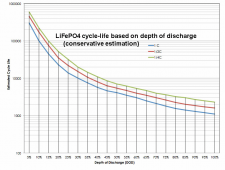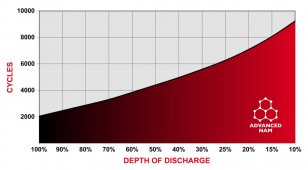Firstly, greetings to all members. Been browsing this place for years, always appreciated the no-nonsense and helpful atmosphere.
I've recently bought a piece of land with a small building (30m2) on it and am setting up a solar array to primarily run a fridge/cooler (Dometic CFX 35 or 50W). Other uses include one or two LED light bulbs and occasional phone/laptop charging. I also have a large power oak battery and 100W panel in/on my van for charging phone/laptop/tools etc.
This is in a very sunny part of Portugal (7kWh/m2/day in July, 2 in December)
I would like to stay on 12V DC as it's my first build and this cabin is intended as an electronics-free zone for people who believe they react negatively to electricity in their surroundings. Many "EMF sensitivity experts" recommend lower voltage as less disturbing, or that an inverter creates "dirty power".
At a very safe estimate, the freezer should use 106kWh a year (I've used 1 Amp per hour but a realistic average is 0.7). Adding 95kWh for 2 light bulbs, 18kWh for a laptop (used very rarely: (60Wx2hours)x150days) and 2kWh for 2 iPhones, it would seem that 300kWh should cover me. I've calculated this to be 820Wh per day (300/365=0.82).
I have been scouring the net for a rough list of items and would like to run stage 1 of my planning by this forum.
2x 390W Trina Vertex 390 solar panels (380€) from local classified ads
1x Victron MPPT 150 / 60 (420€) from local classified ads
2x 200Ah batteries or one 300Ah - Lead acid or LiFePo4? Any recommendations? Not looking to spend over 1500€.
I'm aware I need a fuse box, connectors, cables.
I've entered these values and my location into the JRC off-grid performance simulator (PVGIS) and received the following values:
Does this seem acceptable to you?
Anything I should re-think before continuing my planning?
Thanks in advance.
I've recently bought a piece of land with a small building (30m2) on it and am setting up a solar array to primarily run a fridge/cooler (Dometic CFX 35 or 50W). Other uses include one or two LED light bulbs and occasional phone/laptop charging. I also have a large power oak battery and 100W panel in/on my van for charging phone/laptop/tools etc.
This is in a very sunny part of Portugal (7kWh/m2/day in July, 2 in December)
I would like to stay on 12V DC as it's my first build and this cabin is intended as an electronics-free zone for people who believe they react negatively to electricity in their surroundings. Many "EMF sensitivity experts" recommend lower voltage as less disturbing, or that an inverter creates "dirty power".
At a very safe estimate, the freezer should use 106kWh a year (I've used 1 Amp per hour but a realistic average is 0.7). Adding 95kWh for 2 light bulbs, 18kWh for a laptop (used very rarely: (60Wx2hours)x150days) and 2kWh for 2 iPhones, it would seem that 300kWh should cover me. I've calculated this to be 820Wh per day (300/365=0.82).
I have been scouring the net for a rough list of items and would like to run stage 1 of my planning by this forum.
2x 390W Trina Vertex 390 solar panels (380€) from local classified ads
1x Victron MPPT 150 / 60 (420€) from local classified ads
2x 200Ah batteries or one 300Ah - Lead acid or LiFePo4? Any recommendations? Not looking to spend over 1500€.
I'm aware I need a fuse box, connectors, cables.
I've entered these values and my location into the JRC off-grid performance simulator (PVGIS) and received the following values:
| Percentage days with full battery [%]: | 90.71 |
| Percentage days with empty battery [%]: | 0.24 |
| Average energy not captured [Wh]: | 2214.67 |
| Average energy missing [Wh]: | 133.74 |
Does this seem acceptable to you?
Anything I should re-think before continuing my planning?
Thanks in advance.
Last edited:




